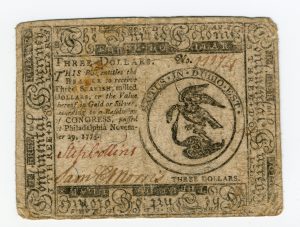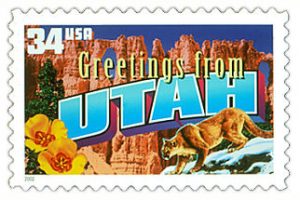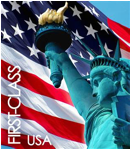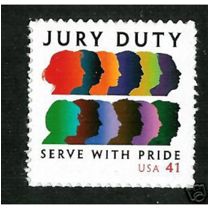Part 2. Inflation and weather and famine?
This is Part two of a series showing how inflation, deflation, barter, tariffs, taxes, postage, war, counterfeiting, history, economics, free trade, famine, dearth, climate, auctions, precious metals, religion, and education are combined into one great whole.
Part Two. Why study Inflation and weather and famine?
2) Weather. Drought conditions kill growing food crops for people and live stock. The loss of crops and stock creates famine, which drives up prices of food, but not necessarily wages for labor. See Bible and Joseph in Egypt, Elijah.
Weather inflation can result when Hail destroys growing crops, creating a shortage of food and crops for people and live stock, which loss creates famine. This Weather inflation occurred in Paris France, and lead to the fall of the entire government. A hail storm in 1787, just at the time of the crop harvest, destroyed all food crops in the open field for 50 leagues in any direction around Paris France. This hail storm and destruction of food, eventually increased the price of food 50 fold or more, and coupled with a debasement of the French franc (lead or copper melted in with, and instead of, gold and silver), set off the French Revolution.[i] destroyed crops- France in 1787-1795.
Weather is described in the Bible, as when Moses in Egypt, called down hail which destroyed the crops, the live stock in the field, and the people in the fields.[ii] The loss of crops drove up prices for the remaining foods.
Weather Inflation is described in the Bible, such as a drought induced famine, , wherein a pile of bird dung could be sold for silver pieces. The purchaser of the bird poop hoped the dung might contain undigested seeds to eat. Was this an example of Inflation of bird dung? The result was Cannibalism, war, and famine.
 The United Colonies, Three Dollar No.11174, Three Dollars This Bill entitles the Bearer to receive Three Spanish Milled Dollars or the Value hereof in gold or Silver according to a Resolution of Congress, passed in Philadelphia November 29, 1775, Step Collins, Sam C Morris, Three Dollars in Continental Currency, Exitus in Dubio Est. [Latin to English – The Exit is unsure, or the finish is in doubt, or To Leave is not the solution. ‘The outcome is in doubt’ Wikipedia .]
The United Colonies, Three Dollar No.11174, Three Dollars This Bill entitles the Bearer to receive Three Spanish Milled Dollars or the Value hereof in gold or Silver according to a Resolution of Congress, passed in Philadelphia November 29, 1775, Step Collins, Sam C Morris, Three Dollars in Continental Currency, Exitus in Dubio Est. [Latin to English – The Exit is unsure, or the finish is in doubt, or To Leave is not the solution. ‘The outcome is in doubt’ Wikipedia .]
Bible inflation. 2 Kings Chapter 6. 25 And there was a great famine in Samaria: and, behold, they besieged it, until an ass’s head was sold for fourscore pieces of silver, and the fourth part of a cab of dove’s dung for five pieces of silver. [This famine was due to the Syrian army surrounding Samaria and besieging it – preventing passage of food or trade. To briefly demonstrate inflation of price of food, were these two examples of 1) using the head of a 4 leg beast of burden for food (brains, skin, eyes). 2)The dove’s dung (poop) may have undigested seeds which could be picked out and eaten, and as droppings over the city. If the dove landed it would be ensnared and eatened up.]
Bible cannibalism 2 Kings Chapter 6. 28 And the king said unto her, What aileth thee? And she answered, This woman said unto me, Give thy son, that we may eat him today, and we will eat my son to morrow. 29 So we boiled my son, and did eat him: and I said unto her on the next day, Give thy son, that we may eat him: and she hath hid her son. [Not enough food for 2 starving mothers  for 2 days!] Postage was Thirty four cents (34 cents) with the 2001 US National Debt was over $5 trillion. The Utah state 34 cent stamp was from the greetings From America, with a card design from the 1930’s and 1940’s.
for 2 days!] Postage was Thirty four cents (34 cents) with the 2001 US National Debt was over $5 trillion. The Utah state 34 cent stamp was from the greetings From America, with a card design from the 1930’s and 1940’s.
Dearth is a term used in the Bible along with drought and famine. So it must be something different than famine or drought. An example of dearth could be insect infestation which destroyed crops. Examples are Moses calling the Lord to send a plague of locusts to Egypt to consume all the crops (Exodus).
An American example of dearth is the locusts, or Mormon crickets as they came to be known, which came to the Salt Lake Valley circa 1849 to eat the growing crops. After prayer and work by the Saints, flocks of Seagulls flew in and devoured the crickets. The seagull is the Utah state bird, and a seagull monument is in downtown Salt Lake City. Utah is about 800 miles  east of the Pacific ocean, the normal location for seagulls. Duke Kahanamoku stamp. Postage was thirty seven cents (37 cents) during Operation Enduring Freedom (2002), This stamp plus 12 cents to
east of the Pacific ocean, the normal location for seagulls. Duke Kahanamoku stamp. Postage was thirty seven cents (37 cents) during Operation Enduring Freedom (2002), This stamp plus 12 cents to
Today chemicals can be used to kill insects on groves, but they also kill the honey bees needed to pollinate the plants (currently a problem in California’s central valley [2018]. Any infestation, Dutch elm disease, or foreign eels in the lakes, Bang’s disease (or Brucellosis, undulant fever, or abortion) in fields among herds of cattle, sheep, or horses, or other diseases can destroy food faster than a blizzard. Or an early blizzard, or late frost, will destroy food.
3) Monopoly in commercial transactions. Patents give monopolies such as with invention of the Bell telephone 1876, or creating efficiency such as Whitney’s interchangeable parts about 1825, or both uniqueness and ability to communicate as in the Remington typewriter of 1873, or filling a need for transportation of cars and trucks by Ford in 1900 and General Motors in 1910, which cars consumed gasoline fuel and expand the oil monopoly of the Rockefellers in the 1870s, and built with steel by Carnegie from 1860 to 1900. Others built monopolies around transportation by the names of Vanderbilt and Stanford, in Railroads 1860-1900), or monopoly in insurance and finance under Morgan -1880s-1930s. Morgan was enabled to provide the monopoly generated seed money for General Electric.
Monopoly Government created by patent or license– A monopoly can control quantity of products or services, usually with the goal of reducing products, thus driving up prices for the products and services. England (tea and trade 1773, England wanted to monopolize American trade to England’s benefit and the colonial deficit by the forced importation of England tea.
Medieval guilds – Master skills controlled training of professions such as weavers, smiths, coopers, shoe makers, teamsters, printers, barbers, etc.
Modern guilds – – law, medicine, engineer, aviation, unions, education, artists, actors, directors, editors, cinema photographers, musicians. Control training, and reduce supply, increases prices. This is still effective in modern times among lawyers, physicians, stock brokers, real estate professionals, and  many more skill sets. Postage was Thirty nine cents (39 Cents) when the 2006 US National Debt was over $8 trillion. Lady Liberty and U.S. Flag plus 10 cents to use the mail in 2018.
many more skill sets. Postage was Thirty nine cents (39 Cents) when the 2006 US National Debt was over $8 trillion. Lady Liberty and U.S. Flag plus 10 cents to use the mail in 2018.
Monopoly – American legislation The Prohibition of sale and import of liquor or beer during 1920-1933 raised prices for smuggled liquor from Canada, created whole industries of bootleggers and moonshine stills in the Southern States. The loss of American markets depressed values of Scotland’s distilleries and California wine country. The story goes Joseph Kennedy bought the Scots’ distilleries for pennies on the dollar, awaiting repeal of prohibition, made a fortune after repeal revived the American liquor consumption market, and increase imports of liquor.
Monopoly Location, geographical – A Nationwide Truck strike facilitated the locals to strip the grocery shelves in Pittsburgh Pennsylvania 1974.
Monopoly – Pittsburgh Pennsylvania. Disruption from the Arab Israeli war of 1967 motivated OPEC (Organization of Petroleum Exporting Countries) to raise bulk oil prices and another Arab Israeli 7 day war of 1973, combined to raise bulk oil prices 10 fold from $3 a barrel over $37 a barrel by 1980) , the U.S. government responded with reallocation of fuel in August 1971, on diesel (and other fuels). The government also set price controls on ‘old oil’ but not on ‘new oil’ [which lead to more black market and smuggling). The price controls and reallocation, created more shortages. The price control on what the interstate truckers could charge, did not permit recovering the higher cost of fuel, so the truckers could not operate at a profit (fuel was unavailable to them because of price and allocation – not because of running out of oil) The truckers (and their unions) called for a nationwide truckers strike, shutting down delivery of everything retail. However, independent truck drivers – still needing to eat – called ‘scabs’ did not honor the strike, and still made deliveries at night. Every major ‘top 100’ city markets in the U.S. had multiple roads and access so the truck unions could not block every road, except Pittsburgh – a top 20 market. Pittsburgh’s location in the western Pennsylvania hills, and centered between 3 rivers (3 rivers stadium where the Monongahela River and Allegheny form the Ohio River) had but 4 major highways, which the striking truckers could more conveniently guard. A few rifle shots at truck cabs attempting to run the gauntlet into Pittsburgh was warning enough to the ‘scabs’ to not enter Pittsburgh. Within 72 hours the grocers shelves were empty of everything, food, paper, produce, supplies. Those hoarding the supplies were able to black market them out, or hoard some more.
Monopoly World wide, Monopoly education – literacy (America, Germany, Scotland – train engineers), software engineering, health care, law, aviation, military, naval and maritime, outer space rocket science. Some adventures require special teams which cannot be duplicated anywhere in the world. The best example is America’s Man on the moon and safe return. The U.S. did this between 1969 and 1973. The other nations who have duplicated that feat, in the past nearly half century, after seeing how to do it, can be counted on your 14th toe. Unfortunately, the American space teams (both Air Force and NASA) were dissipated in the 1990s under Clinton, although the process of strangling the  space program had begun in 1978 under Carter and his Congress. Postage was forty one cents (41 cents) during 2007 New Way Forward for the Iraqi Freedom surge (2007), One of these Jury Duty Serve with Pride plus eight cents.
space program had begun in 1978 under Carter and his Congress. Postage was forty one cents (41 cents) during 2007 New Way Forward for the Iraqi Freedom surge (2007), One of these Jury Duty Serve with Pride plus eight cents.
Monopoly government protection by use of laws for patent, copyright, intellectual property protections – US and Europe, research
Monopoly government – health, drugs, devices, pharmaceuticals – aspirin, penicillin, polio vaccine, smallpox vaccine) If a country does not have patent protection for inventors, it won’t have any research, because the researchers cannot recover their costs nor be rewarded for the risks incurred.
4) Real estate – islands (England and Scotland, Hawaii), Manhattan, Japan, valleys (Utah, Japan). Islands have limited access to land, and if the land is full the growth must go up or down.
5) Population growth – Too many people bidding on too little space. Can bid up price of land, concentration of utilities, costs of transportation – Coastal California, Tokyo, London, New York’s  Manhattan Island has skyscrapers increasing its square footage , each floor worth dozens of dollars per square foot. Postage was forty four cents (44 cents) for the 2008 when the 2008 US National Debt added $2 trillion in two years. 2010 centennial of the Boy Scouts of America Scouting.
Manhattan Island has skyscrapers increasing its square footage , each floor worth dozens of dollars per square foot. Postage was forty four cents (44 cents) for the 2008 when the 2008 US National Debt added $2 trillion in two years. 2010 centennial of the Boy Scouts of America Scouting.
6) Rationing – War may destroy production, prevents labor from working crop fields, disrupt labor from food clothing and shelter to war armaments and supplies, such as in 1945 Europe, Asia. From the 1780s Prussia occupied Poland, limiting Poland’s development, and resulting in a barter economy. Get a list of wars, and you have the locations for barter economies.
By 1941, Imperial Japan’s wartime control of the East Indies (such as Java, later Indonesia) and the rubber tree plants there, cut off the rubber source in America used for making for truck and automobile tires. The U.S. government responded to and anticipated this perceived shortage with automotive gasoline fuel rationing, although gasoline in the U.S. was plentiful! The thinking was that if cars were limited by their access to fuel, the cars could not drive, and so they would preserve their tires from wearing out. Of course, the rationing was just as effective as if the tires had worn out and the cars could not drive around. The Federal government employees were exempted from gas rationing. American industry responded by inventing a synthetic rubber from petroleum, which was plentiful before, during, and after the war. After the war, the Java rubber industry never recovered its prewar markets for tires and natural rubber.
An Overview of World Natural Rubber… (PDF Download Available). Available from: https://www.researchgate.net/publication/268198297 An_Overview_of_World_Natural_Rubber Production_and_Consumption_An_Implication for_Economic Empowerment_and_Poverty_Alleviation_in_Nigeria [Apr 01 2018].
 Postage was forty five cents (45 cents) for the 2012 summer Olympic games in London. This special 45-cent stamp features Thomas E. Franklin’s photo of three New York City firefighters raising an American flag outside the World Trade Center, and was issued June 2002, with eleven cents sent to Federal Emergency Management Agency.
Postage was forty five cents (45 cents) for the 2012 summer Olympic games in London. This special 45-cent stamp features Thomas E. Franklin’s photo of three New York City firefighters raising an American flag outside the World Trade Center, and was issued June 2002, with eleven cents sent to Federal Emergency Management Agency.
7) Credit or debt inflation – Too much money chasing too few goods or services, drives up prices. So credit, whether from individual, or by the city, county, state, or national, is an instant increase in money chasing goods or services. Read how President Grant compared being in debt, to dragging around a dead horse for decades.[iii]
https://www.lds.org/manual/ teachings-heber-j-grant/chapter-13?lang=eng
 Postage was forty six (46 cents) when 2012 US National Debt was over $16 trillion). 150th anniversary. On January 1, 1863, President Abraham Lincoln signed the Emancipation Proclamation, which declared that all slaves in the rebel states of the Confederacy “are, and henceforward shall be free.” The 2013 stamp commemorates the 150th anniversary of the Emancipation Proclamation and emphasizes the powerful statement, “Henceforward Shall Be Free,” The stamp sold for 45 cents for 2 weeks then raised to 46 cents.
Postage was forty six (46 cents) when 2012 US National Debt was over $16 trillion). 150th anniversary. On January 1, 1863, President Abraham Lincoln signed the Emancipation Proclamation, which declared that all slaves in the rebel states of the Confederacy “are, and henceforward shall be free.” The 2013 stamp commemorates the 150th anniversary of the Emancipation Proclamation and emphasizes the powerful statement, “Henceforward Shall Be Free,” The stamp sold for 45 cents for 2 weeks then raised to 46 cents.
[i] Thomas Carlyle, English historian, wrote his 1840’s history, The French Revolution, pretty much following the revolution in chronological order from 1775 to 1795, ending with the take over by Napoleon. The King Louis 16th ’s court had debased the French coins in the 1770’s, and by 1787, a laborer could earn enough wages in a day to only feed a family of 3. So lots of adults had to work to feed infants. After the 1787 hail storm, the price of food would rise, but not the wages, not the clothes, not the homes. So a worker’s daily wage would feed only one person for a day, then worker’s needed 3 days wages to feed one person for one day, then a laborer needed a weeks wage to feed one meal. You could not work long enough to eat. Starvation and anger was the result. The Storming of the Bastille Saint-Antoine on 14 July 1789 was not to free prisoners, but because the peasants thought food was hoarded there. The well fed, or not totally starved, were full faced, not gaunt, sallow eyes. The well fed were easy to spot if they went out in the towns or country. Then 200,000 starving peasants carrying scythes, hoes, pitchforks marched the 20 miles from Paris to Versailles to seize the King Louie 16th and Queen Marie Antoinette, and brushed aside the armed Swiss guards, because the peasants were going to starve anyway, the muskets of the guards held no fear. Ultimately the rein of terror in 1791-1793 condemned tens of thousands of anyone whose countenance was not gaunt, emaciated, starved. These plump persons meant Priests and nuns, royals, and nobles who controlled the land. Carlyle noted that before the Revolution 200,000 estates covered France, an area the size of Texas (about an average 750 acres each). Forty years later, 4 million farms replaced the nobility and estates (about 40 acres each). The result was a much more efficient farming, agricultural, industry.
[ii] Exodus 9. 18 Behold, to morrow about this time I will cause it to rain a very grievous hail, such as hath not been in Egypt since the foundation thereof even until now. 19 Send therefore now, and gather thy cattle, and all that thou hast in the field; for upon every man and beast which shall be found in the field, and shall not be brought home, the hail shall come down upon them, and they shall die. 20 He that feared the word of the Lord among the servants of Pharaoh made his servants and his cattle flee into the houses: 21 And he that regarded not the word of the Lord left his servants and his cattle in the field. 22 ¶ And the Lord said unto Moses, Stretch forth thine hand toward heaven, that there may be hail in all the land of Egypt, upon man, and upon beast, and upon every herb of the field, throughout the land of Egypt. 23 And Moses stretched forth his rod toward heaven: and the Lord sent thunder and hail, and the fire ran along upon the ground; and the Lord rained hail upon the land of Egypt. 24 So there was hail, and afire mingled with the hail, very grievous, such as there was none like it in all the land of Egypt since it became a nation. 25 And the hail smote throughout all the land of Egypt all that was in the field, both man and beast; and the hail smote every herb of the field, and brake every tree of the field. 26 Only in the land of Goshen, where the children of Israel were, was there no hail.
[iii] “Chapter 13: Principles of Financial Security,” Teachings of Presidents of the Church: Heber J. Grant (2011), 119–28. An economic crisis swept across much of the United States in 1893, leaving hundreds of banks, railroads, mines, and other businesses in financial ruin. That crisis, called the Panic of 1893, caught Elder Heber J. Grant and many others by surprise. It saddled Elder Grant, then a member of the Quorum of the Twelve Apostles, with debts that took him years to repay. In an address he gave during that time he said: “I want to confess to you that I and many others have done wrong. Why? Because we have been so very anxious to make a dollar that we have run in debt, and now we cannot promptly pay our honest debts. … For the first time in my life I have had people come to me and ask me to pay money that I owed them, and I have had to ask for an extension of time. If the Lord will only forgive me this once I will never be caught again. I have been a borrower of money since I was eighteen; but if I can only get paid off what I owe now, I shall be content, I believe, with the blessings of the Lord, whatever they may be, be it much or little.”1 April 1932. avoid debt. many years earlier when he went into debt to buy stock in the Salt Lake Theatre, hoping to save the building from being torn down:
“I want all the people within the sound of my voice to benefit by my experience in buying theatre stock. [For] 32 years of my life, … every dollar I made was lost before I made it. It is a great burden, figuratively speaking, to have a dead horse, and to have to carry the horse for 32 years before you can put it under the ground. . It is a terrible condition, and all on account of debt. Let me warn the Latter-day Saints to buy automobiles and to buy the ordinary necessities of life when they have the money to buy them, and not to mortgage their future. I believe that nearly all of the hardships of a majority of the people would disappear if they were willing to forego the habit of wearing silk stockings, so to speak, and get back to the ordinary manner of dressing in a rather quiet, unassuming way; stay away from about nine-tenths of the picture shows that they attend; return to the ways of thrift and economy.8
Disclaimer: The author of each article published on this web site owns his or her own words. The opinions, beliefs and viewpoints expressed by the various authors and forum participants on this site do not necessarily reflect the opinions, beliefs and viewpoints of Utah Standard News or official policies of the USN and may actually reflect positions that USN actively opposes. John Choate © No claim in public domain or fair use.
Utah Standard News depends on the support of readers like you.
Good Journalism requires time, expertise, passion and money. We know you appreciate the coverage here. Please help us to continue as an alternative news website by becoming a subscriber or making a donation. To learn more about our subscription options or make a donation, click here.
To Advertise on UtahStandardNews.com, please contact us at: ed@utahstandardnews.com.


Comments - No Responses to “Part 2. Inflation and weather and famine?”
Sure is empty down here...